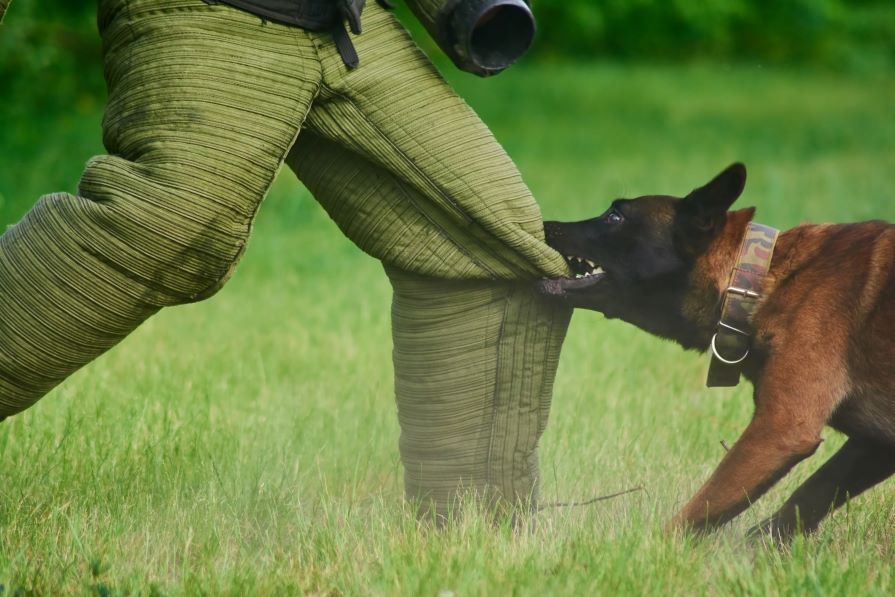Dog bites can be considered a traumatic experience, leading to physical injuries, emotional distress, and financial burdens. Understanding your legal rights in dog bite cases is essential to ensuring you receive the necessary compensation and support.
This article will provide an in-depth look at the legal aspects of dog bite cases, including liability, the process of filing a claim, and tips for protecting your rights.
Liability in Dog Bite Cases
The liability in cases of dog bites is usually dependent on the state where the incident took place. Generally, there are three legal rules that determine a dog owner’s liability:
1. Strict Liability
Strict liability holds dog owners liable for bite injuries regardless of prior behavior or knowledge. Most U.S. states have adopted this, simplifying victim compensation. Exceptions include provocation, trespassing, or assumed risk by the victim, ensuring owners are responsible for their pets’ actions.
2. Negligence
Negligence in dog bite cases requires victims to prove the owner failed to exercise reasonable care, such as not restraining the dog, ignoring leash laws, or neglecting known dangerous tendencies, directly leading to the bite and resulting in injuries. When you’re looking for a reliable dog bite lawyer in Salt Lake City, it’s crucial to find one who can effectively demonstrate these elements to secure the compensation you deserve.
3. One Bite Rule
The “one bite rule” holds dog owners liable only if they knew or should have known about their dog’s aggressive behavior. The first bite is often exempt from liability, but subsequent bites can result in owner responsibility if aggression is proven.
Steps to Take After a Dog Bite
If you or someone you know has been bitten by a dog, following these steps can help protect your rights and support your case:
1. Seek Medical Attention
Immediate medical care is crucial for dog bites to prevent infections and complications. Medical records from this visit are essential evidence in legal cases or insurance claims.
2. Report the Incident
Notify local animal control or law enforcement about the bite promptly. This creates an official record crucial for legal actions or claims and helps authorities investigate the dog’s history and enforce laws.
3. Gather Information
Collect the owner’s contact information and details about the dog, including breed and vaccination history. Take photos of the scene, your injuries, and the dog.
4. Document the Incident
Take photos of your injuries and the bite location, preserve relevant evidence, and keep detailed records of medical treatments and expenses, including doctor’s visits, medications, and lost wages.
5. Witness Statements
If there were witnesses to the attack, obtain their contact information and ask for detailed statements about the incident. Witnesses can offer unbiased perspectives and corroborate your account of the events.
Filing a Dog Bite Claim
This involves several steps and can vary depending on the state’s laws. Here is a general outline of the process:
1. Consult an Attorney
Contact a personal injury attorney with experience in dog bite cases. They can provide guidance on your rights and the best course of action. Many attorneys offer free legal consultations and accept a contingency fee basis, wherein they only get paid if you win the dog bite case.
2. Investigation
Your dog bite attorney will investigate the incident, gather evidence, and interview witnesses. They usually consult with medical experts to assess the extent of your physical injuries and the long-term impact on your life.
3. Demand Letter
Before filing a lawsuit, your attorney may send a demand letter to the owner of the dog or their insurance company. This letter outlines your injuries, medical expenses, lost wages, and other damages, and requests compensation.
4. Settlement Negotiations
Your attorney will negotiate with the dog owner’s insurance company to reach a fair settlement. If a settlement cannot be reached, the case may go to trial.
5. Filing a Lawsuit
If negotiations fail, your dog bite lawyer will file a lawsuit on your behalf. This involves drafting a complaint, serving it to the defendant, and going through the discovery process, where both sides exchange evidence and information.
6. Trial
During the trial, both parties are given an opportunity to present their evidence and arguments. The jury will determine legal liability and the amount of compensation you should receive.

Types of Compensation
Victims of dog bites can obtain compensation, including:
1. Medical Expenses
Dog bite treatment includes costs for emergency care, hospital stays, surgeries, medications, and any ongoing medical treatments.
2. Lost Wages
If your dog bite injury prevents you from working, you can seek compensation for diminished earning capacity and lost wages.
3. Pain and Suffering
It includes physical pain and emotional distress caused by the bite. Factors such as the severity of the injury and its impact on your quality of life are considered.
4. Property Damage
If the dog bite resulted in damage to personal property, such as clothing or eyeglasses, you can seek reimbursement for repairs or replacement.
5. Punitive Damages
In cases where the dog owner’s behavior was particularly reckless or malicious, the court may award punitive damages to punish the owner and deter similar conduct in the future.
Protecting Your Rights
To strengthen your dog bite case and protect your legal rights, consider the following tips:
1. Avoid Settling Too Quickly
Insurance companies may offer quick, low settlements after an incident. Consult an experienced dog bite attorney before accepting any offers to ensure all current and future expenses are considered and you receive fair compensation.
2. Understand Statutes of Limitations
Dog bite cases have statutes of limitations, setting deadlines for filing lawsuits that vary by state. Consult an attorney to ensure you meet these deadlines and preserve your rights.
3. Keep Detailed Records
Maintain detailed records of all your medical treatments, expenses, and communications related to a dog bite. This thorough documentation supports your claim and provides crucial evidence of the incident’s impact.
4. Follow Medical Advice
Follow the doctor’s advice and ensure you attend check-ups to recover well, avoid complications, and show the doctor the seriousness of your injuries. All this is important in building a case for your claim.
5. Stay Informed
Knowing the state’s dog bite laws is important for understanding one’s rights. Such knowledge enables one to make informed decisions, gather evidence, and work effectively with a lawyer.
Conclusion
Dog bite cases can be complicated. Hence, it is very important to know your legal rights and what needs to be done after such an incident. Seek medical attention for your health and to document the injuries from the incident. Evidence such as pictures, witness statements, and detailed records of medical treatments and expenses will help build your case. Don’t delay consulting with an experienced dog bite attorney who will help you sort out legal complexities and advocate for fair compensation.
















